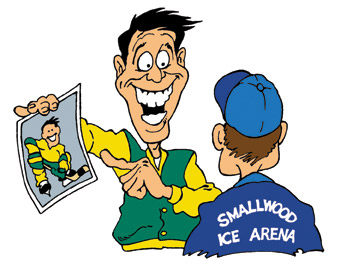It is very rare for me to single people out for bad personal branding, especially when I made mistakes when I first entered the blogosphere a few years ago, such as spamming the press/bloggers and leaving self-promotional comments on blogs. Those days are over and by learning from mistakes, it’s helped me teach you how to do it right!
I’ve spoken before about how personal branding is not about you, but the audience or community that you serve. I’m never going back on that mantra, I promise. I constantly promote others, which in turns helps promote my brand. You should do the same if you want to be successful!
Today’s personal branding case study comes from the crazy self-promoter known as Matt Bacak. Now, I’m sure he had great intentions in all that he’s done on the internet, but the perception is terrible and his brand has been engulfed with negative tweets and blog posts as a result. I wasn’t going to originally blog on this today, but Scott Bradley told me that it was a “must-post” for my blog.
Who is Matt Bacak?
Matt Bacak is Entrepreneur Magazine’s e-Biz radio show host. He has branded himself as “The Powerful Promoter.” He considers himself a sought-after internet marketer but also has marketed for some of the world’s top experts whose reputations would shrivel if their followers ever found out someone else coached them on their online marketing strategies. Matt, an entrepreneur from the time he could pull a wagon, started his first company with employees at the age of 12.
Selfish press releases
Within the past few months, Matt has paid for two press releases (PRWeb Wire Service) that have bragged about the number of friends he has on Facebook and the number of followers he has on Twitter.
-
October 13th: “Matt Bacak Hits Facebook’s 5000 Friend Limit”
-
December 2nd: “The Powerful Promoter Promotes Himself Straight to the Top of Twitter – Matt Bacak Achieves Another Social Networking Milestone”
Branding analysis
Matt’s Twitter profile isn’t branded whatsoever. In fact, it’s completely white, which in no way matches his personal site or his corporate website. He has almost 2,000 followers, but doesn’t follow almost any of them. I know many people with thousands more than him. This comes off as very selfish and shows that he doesn’t care about his community. I’m still not even sure what Matt does because of the amount of focus he’s placed on his own achievements.
In the Facebook release, he starts naming successful people that he’s “friends with,” yet I can bet you $100 that he’s not and they don’t know who he is. Also, I’m sure he didn’t get permission to use their names in commerce (for the release), so they could sue him, if they even cared. He’s not the only person with “5,000 friends” on Facebook. Anyone can get 5,000 friends in Facebook if they dedicate an entire day to adding random people. Is it worthwhile? No. Spend time posting on your blog instead please.
Results
- If you view the Twitter hash tag for Matt, you will notice all the harassment he’s gotten today.
- Matt gets laughed at on Digg for not having skills.
- Digg users have named him “The biggest douche in social media”
- He has an entire website dedicated to mocking the amount of people that know him.
- There have been countless blog posts, some of which have called him a fraud for labeling himself as a top Twitter user when he’s not.
Final word
I’m sure Matt is a nice guy and probably has some credibility and “raving fans,” but having thousands of Facebook friends and Twitter followers isn’t a big achievement. If he had 100,000 RSS subscribers to his blog, then I think that would be noteworthy, but you can’t force that type of loyalty. I’m sure Matt has learned a valuable lesson here and I hope to God that he doesn’t send a press release entitled “Just got 500 LinkedIn contacts, you should do business with me!”
Let this be a lesson to all of you: You gain the privilege to promote yourself, after you’ve promote everyone else.






